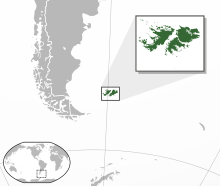This is a list of notable events in the history of LGBT rights that took place in the year 2005.

The rights of lesbian, gay, bisexual, and transgender (LGBT) people in the United Kingdom of Great Britain and Northern Ireland have developed significantly over time. Today, lesbian, gay, and bisexual rights are considered to be advanced by international standards.

Lesbian, gay, bisexual, and transgender (LGBT) rights in the British Crown dependency of the Isle of Man have evolved substantially since the early 2000s. Private and consensual acts of male homosexuality on the island were decriminalised in 1992. LGBT rights have been extended and recognised in law since then, such as an equal age of consent (2006), employment protection from discrimination (2006), gender identity recognition (2009), the right to enter into a civil partnership (2011), the right to adopt children (2011) and the right to enter into a civil marriage (2016).
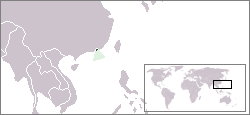
Lesbian, gay, bisexual, and transgender (LGBT) people in Hong Kong may face legal challenges not experienced by non-LGBT residents.

Lesbian, gay, bisexual, and transgender (LGBT) persons in the U.S. state of Wyoming may face some legal challenges not experienced by non-LGBT residents. Same-sex sexual activity has been legal in Wyoming since 1977, and same-sex marriage was legalized in the state in October 2014. Wyoming statutes do not address discrimination on the basis of sexual orientation and gender identity; however, the U.S. Supreme Court's ruling in Bostock v. Clayton County established that employment discrimination against LGBT people is illegal under federal law. In addition, the cities of Jackson, Casper, and Laramie have enacted ordinances outlawing discrimination in housing and public accommodations that cover sexual orientation and gender identity.
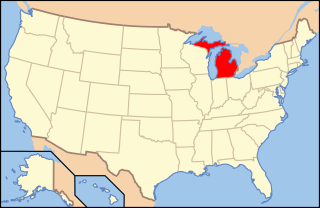
Lesbian, gay, bisexual, and transgender (LGBT) people in the U.S. state of Michigan enjoy the same rights as non-LGBT people. Same-sex sexual activity is legal in Michigan under the US Supreme Court case Lawrence v. Texas, although the state legislature has not repealed its sodomy law. Same-sex marriage is legal. Discrimination on the basis of both sexual orientation and gender identity is unlawful since July 2022, was re-affirmed by the Michigan Supreme Court - under and by a 1976 statewide law, that explicitly bans discrimination "on the basis of sex". The Michigan Civil Rights Commission have also ensured that members of the LGBT community are not discriminated against and are protected in the eyes of the law since 2018 and also legally upheld by the Michigan Supreme Court in 2022. In March 2023, a bill passed the Michigan Legislature by a majority vote - to formally codify both "sexual orientation and gender identity" anti-discrimination protections embedded within Michigan legislation. Michigan Governor Gretchen Whitmer signed the bill on March 16, 2023. In 2024, Michigan repealed “the last ban on commercial surrogacy within the US” - for individuals and couples and reformed the parentage laws, that acknowledges same sex couples and their families with children.

Lesbian, gay, bisexual and transgender (LGBT) rights in the British Overseas Territory of Saint Helena, Ascension and Tristan da Cunha have gradually evolved over the years. Discrimination on the basis of sexual orientation is banned in the entire territory through the Constitution Order 2009 and same-sex marriage has been legal on the islands since 2017.
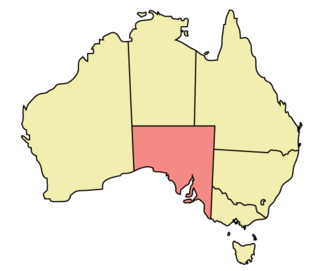
The rights of lesbian, gay, bisexual, and transgender (LGBT) people in the Australian state of South Australia are advanced and well-established. South Australia has had a chequered history with respect to the rights of LGBT people. Initially, the state was a national pioneer of LGBT rights in Australia, being the first in the country to decriminalise homosexuality and to introduce a non-discriminatory age of consent for all sexual activity. Subsequently, the state fell behind other Australian jurisdictions in areas including relationship recognition and parenting, with the most recent law reforms regarding the recognition of same-sex relationships, LGBT adoption and strengthened anti-discrimination laws passed in 2016 and went into effect in 2017.

Lesbian, gay, bisexual, and transgender (LGBT) people in the U.S. state of Georgia enjoy most of the same rights and liberties as non-LGBT people. LGBT rights in the state have been a recent occurrence, with most improvements occurring from the 2010s onward. Same-sex sexual activity has been legal since 1998, although the state legislature has not repealed its sodomy law. Same-sex marriage has been legal in the state since 2015, in accordance with Obergefell v. Hodges. In addition, the state's largest city Atlanta, has a vibrant LGBT community and holds the biggest Pride parade in the Southeast. The state's hate crime laws, effective since June 26, 2020, explicitly include sexual orientation.
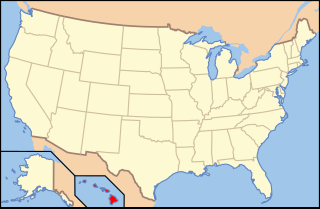
Lesbian, gay, bisexual, and transgender (LGBT) people in the U.S. state of Hawaii enjoy the same rights as non-LGBT people. Same-sex sexual activity has been legal since 1973; Hawaii being one of the first six states to legalize it. In 1993, a ruling by the Hawaiʻi Supreme Court made Hawaii the first state to consider legalizing same-sex marriage. Following the approval of the Hawaii Marriage Equality Act in November 2013, same-sex couples have been allowed to marry on the islands. Additionally, Hawaii law prohibits discrimination on the basis of both sexual orientation and gender identity, and the use of conversion therapy on minors has been banned since July 2018. Gay and lesbian couples enjoy the same rights, benefits and treatment as opposite-sex couples, including the right to marry and adopt.

Lesbian, gay, bisexual, and transgender (LGBT) people in the U.S. state of Pennsylvania enjoy most of the same rights as non-LGBT residents. Same-sex sexual activity is legal in Pennsylvania. Same-sex couples and families headed by same-sex couples are eligible for all of the protections available to opposite-sex married couples. Pennsylvania was the final Mid-Atlantic state without same-sex marriage, indeed lacking any form of same-sex recognition law until its statutory ban was overturned on May 20, 2014.

Lesbian, gay, bisexual, and transgender (LGBT) people in the U.S. state of Indiana enjoy most of the same rights as non-LGBT people. Same-sex marriage has been legal in Indiana since October 6, 2014, when the U.S. Supreme Court refused to consider an appeal in the case of Baskin v. Bogan.

Lesbian, gay, bisexual, and transgender (LGBT) rights in the British Crown dependency of Guernsey have improved significantly in the past decades. Same-sex sexual activity for both men and women is legal in Guernsey. Same-sex marriage has been legal since 2 May 2017 in Guernsey, and since 14 June 2018 in its dependency, Alderney. Legislation approving the legalisation of same-sex marriage in its other dependency, Sark was given royal assent on 11 March 2020. Guernsey is the only part of the British Isles to have never enacted civil partnership legislation, though civil partnerships performed in the United Kingdom were recognised for succession purposes. Since April 2017, same-sex couples can adopt in the entire Bailiwick. Discrimination based on sexual orientation and gender identity has been banned since 2004. Transgender people can legally change gender since 2007.
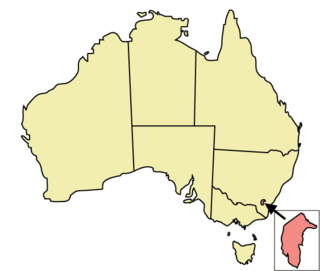
The Australian Capital Territory (ACT) is one of Australia's leading jurisdictions with respect to the rights of lesbian, gay, bisexual, and transgender (LGBT) people. The ACT has made a number of reforms to territory law designed to prevent discrimination of LGBT people; it was the only state or territory jurisdiction in Australia to pass a law for same-sex marriage, which was later overturned by the High Court of Australia. The Australian Capital Territory, Victoria, New South Wales and Queensland are the only jurisdictions within Australia to legally ban conversion therapy on children. The ACT's laws also apply to the smaller Jervis Bay Territory.

Lesbian, gay, bisexual, and transgender (LGBT) rights in the British Crown dependency of Jersey have evolved significantly since the early 1990s. Same-sex sexual activity was decriminalised in 1990. Since then, LGBT people have been given many more rights equal to that of heterosexuals, such as an equal age of consent (2006), the right to change legal gender for transgender people (2010), the right to enter into civil partnerships (2012), the right to adopt children (2012) and very broad anti-discrimination and legal protections on the basis of "sexual orientation, gender reassignment and intersex status" (2015). Jersey is the only British territory that explicitly includes "intersex status" within anti-discrimination laws. Same-sex marriage has been legal in Jersey since 1 July 2018.

Lesbian, gay, bisexual, and transgender (LGBT) persons in the British Overseas Territory of Akrotiri and Dhekelia enjoy most of the same rights as non-LGBT people.

Lesbian, gay, bisexual, and transgender (LGBT) people in the British Overseas Territory of the Pitcairn Islands enjoy most of the same rights as non-LGBT people. Same-sex sexual activity is legal, discrimination based on sexual orientation is constitutionally outlawed and same-sex marriage has been legal since 14 May 2015.
This is a list of notable events in the history of LGBT rights that took place in the year 2016.
This is a list of notable events in the history of LGBT rights that took place in the year 2017.
Same-sex marriage has been legal in the Falkland Islands since 29 April 2017. A law to permit same-sex couples to marry passed the Legislative Assembly on 30 March, and was given royal assent by Governor Colin Roberts on 13 April. The territory also recognises civil partnerships, open to both same-sex and different-sex couples.
